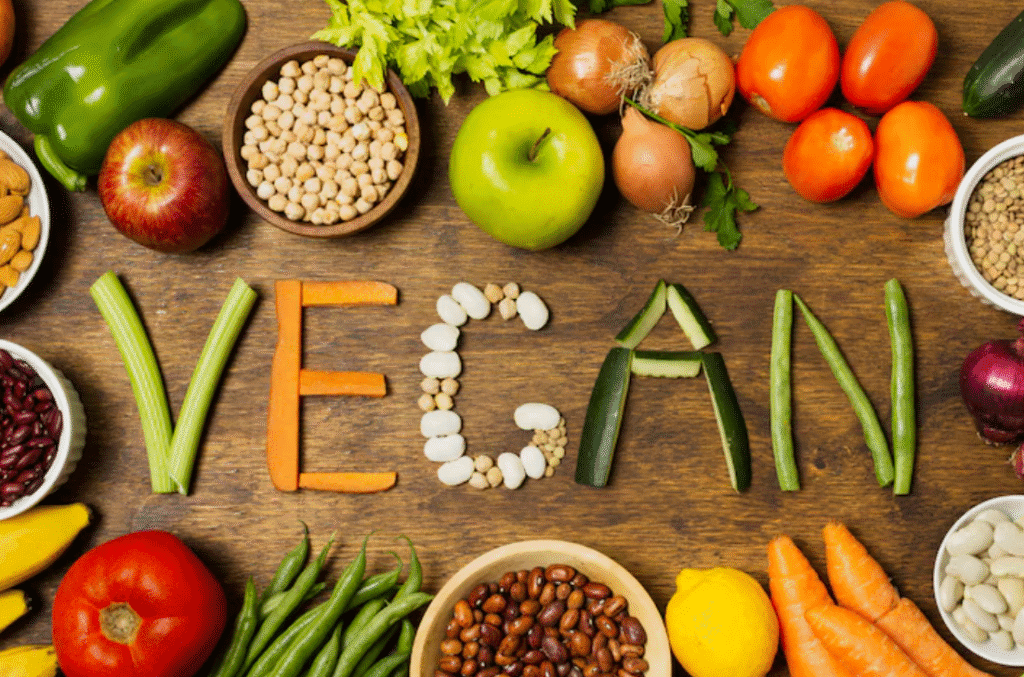Our food choices don’t just affect our health—they also shape the health of the planet. Among all lifestyle shifts an individual can make, adopting a vegan diet is one of the most powerful ways to reduce environmental impact. From lowering greenhouse gas emissions to saving water and protecting ecosystems, veganism supports a more sustainable and compassionate future.
This article breaks down how plant-based eating contributes to a cleaner, greener planet and why it’s central to global climate action.
🌍 1. Lower Carbon Footprint
Animal agriculture is one of the leading contributors to greenhouse gas emissions, accounting for an estimated 14.5% to 18% of global emissions—more than all cars, planes, and trains combined.
How a vegan diet helps:
- No methane from livestock (mainly cows and sheep), which is 25x more potent than CO₂.
- Fewer transportation and processing emissions from meat, dairy, and eggs.
- Plant-based protein production emits significantly less CO₂ compared to animal-based foods.
🔎 A 2018 study by Oxford University found that going vegan can reduce your food-related carbon footprint by up to 73%.
💧 2. Reduced Water Usage
Producing animal products is incredibly water-intensive. From watering crops to hydrate animals to cleaning factory farms, meat and dairy production consumes massive amounts of freshwater.
Water needed to produce:
- 1 pound of beef: ~1,800 gallons of water
- 1 pound of tofu: ~300 gallons of water
- 1 glass of dairy milk: ~120 gallons vs. ~40 gallons for almond milk and ~10 for oat milk
A vegan diet dramatically reduces water usage by replacing resource-heavy animal foods with more water-efficient plants.
🌳 3. Reduced Deforestation and Habitat Loss
Vast areas of forest are cleared every year to:
- Grow animal feed (like soy and corn)
- Create grazing land for cattle
The Amazon Rainforest, often called the “lungs of the Earth,” is being deforested at alarming rates, largely due to beef production and feed crop farming.
Why veganism matters:
- Shifts demand away from industries that destroy forests
- Protects biodiversity by preserving habitats
- Reduces the risk of species extinction caused by habitat destruction
🌾 4. More Efficient Land Use
Animal agriculture requires 3–10 times more land than plant-based agriculture. This is due to the inefficiency of converting crops into animal calories.
Consider this:
- It takes 16 pounds of grain to produce 1 pound of beef.
- Land used to grow animal feed could directly feed humans far more efficiently.
By choosing plants over animals, we free up land for reforestation, wildlife preservation, or sustainable farming practices.
🧪 5. Reduced Pollution and Waste
Factory farms produce massive amounts of waste, which can contaminate:
- Rivers and lakes (due to runoff of manure and fertilizers)
- Air (with ammonia and particulate matter)
- Groundwater (posing public health risks)
Plant-based agriculture produces far less chemical runoff and waste, making it a cleaner alternative for the environment.
🔥 6. Combatting Climate Change
Climate scientists and environmental organizations—including the UN and IPCC—have acknowledged that a global shift toward plant-based diets is essential to meet climate goals.
A vegan diet:
- Significantly cuts methane and nitrous oxide emissions
- Reduces pressure on Earth’s natural resources
- Slows global warming by supporting regenerative land practices
🌾 7. Supports Sustainable Food Systems
As the global population rises, so does the demand for food. A plant-based food system can feed more people using fewer resources, helping alleviate hunger while reducing environmental strain.
Sustainable benefits include:
- Lower resource input for higher nutritional output
- Better food equity and distribution
- Fewer disruptions to ecosystems
📉 8. Reduces Ocean Dead Zones and Overfishing
Animal agriculture runoff is a major contributor to dead zones—areas in oceans or lakes where no life can survive due to lack of oxygen.
Also, industrial fishing devastates marine life through:
- Overfishing
- Bycatch (unintended killing of other species)
- Habitat destruction from trawling
A vegan diet limits your contribution to these harmful practices and helps protect ocean ecosystems.
🌱 Conclusion: Eat Plants, Heal the Planet
Choosing a vegan lifestyle isn’t just about personal ethics or health—it’s a powerful environmental decision. Whether you’re reducing your carbon footprint, conserving water, or preserving forests, every plant-based meal contributes to a healthier, more sustainable world.
You don’t need to be perfect. Even gradual shifts toward a plant-based diet can make a meaningful difference when multiplied by millions of people.
Would you like a visual infographic summarizing the environmental stats of veganism or a beginner’s guide to low-impact, eco-friendly eating?




